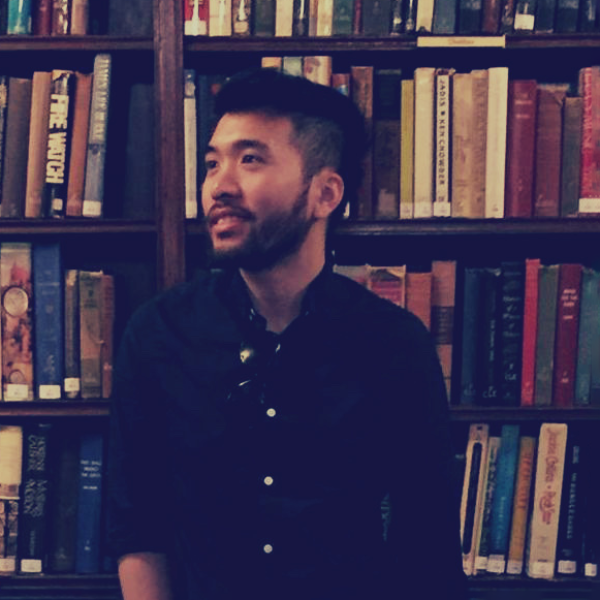
Baldwin Giang's "roses"
Program notes:
“Every concept originates through our equating what is unequal. Just as it is certain that one [rose] is never totally the same as another, so it is certain that the concept ‘[rose]’ is formed by arbitrarily discarding these individual differences and by forgetting the distinguishing aspects...truths are illusions about which one has forgotten that this is what they are; metaphors which are worn out and without sensuous power...” — Friedrich Nietzsche, On Truth and Lies in a Nonmoral Sense “Enter Octavian, dressed in white and silver carrying the Silver Rose in his hand...They stand opposite each other; each disconcerted by the confusion and beauty of the other.” — Hugo von Hofmannsthal, libretto to Der Rosenkavalier “Rose petals seem to fall It’s all like a dream to call you mine My heart’s a lighter thing Since you made me this night a thing divine” — Manny Kurtz, lyrics to In a Sentimental Mood roses is a meditation on sound as both being and becoming. Just as how Nietzsche describes our formation of the concepts of objects, like a rose, our concepts of individual sounds requires equating what is unequal. Think of the voice of a cherished loved one. Your loved one’s voice is in a constant state of becoming, never sounding the same from year to year or even minute to minute, because their body is continually changing. Yet somehow over your relationship with them, you form an abstraction of their voice, forgetting the differentiating aspects of their pronunciation, pitch, tone, breathing quality, and etc. from moment to moment. You have in your concept of your loved one’s voice a very large set of sounds that could be instantiations of it, and it is perhaps only after hearing recordings of your loved one’s voice from many years apart that you would even stop to notice the differences. I think of the musical material of roses as having a similar flexibility and nuance. On the surface of the music, it is easy to hear a long melody through the entire piece, just as it is easy to pick out a rose from among other objects. Yet zooming in on the sounds that make up the material of roses, one hears that many of its sounds are constantly in flux, their microscopic details as infinitely varied in time as the thorns on each rose. Cast in a rotating sectional form, all of the musical material of roses is presented more than once. Each time materials returns, it is always presented in a slightly different context, sometimes through careful elision with preceding and/or following sections. One might hear roses as questioning the limits of thematic development: how little can you change a theme for it to sound new upon a recurrence? How much can you change a theme for it to still preserve its identity? What can we learn from the ambiguity of trying to determine if something is even a recurrence at all? roses also makes both conceptual and musical references to two great inspirations of mine, the presentation of the Silver Rose scene from Richard Strauss’s Der Rosenkavalier and In a Sentimental Mood written by Billy Strayhorn, especially as performed by Duke Ellington and John Coltrane. Though there are no direct quotes from either composer, I am inspired by how differently both works treat the temporality of the rose. In Strauss’s work, the rose is solidified into metal, representing an unchanging courtship ritual passed through many generations within a family. In the lyrics to Strayhorn’s work, the falling petals of a rose are symbolic of the necessarily ephemeral nature of sentimental mood and affect. Yet still these descriptions oversimplify the state of tension between being and becoming that these works ultimately live in. Despite their different starting points, both still negotiate between the grace that comes with recognizing everything’s transience (as the Marschallin does in passing Octavian to Sophie) and the very human desire to want to prolong those temporary blisses. It is from within a similar dialectic that my own roses gets life.
Baldwin Giang's roses premiered on December 3, 2021 with the Grossman Ensemble.
